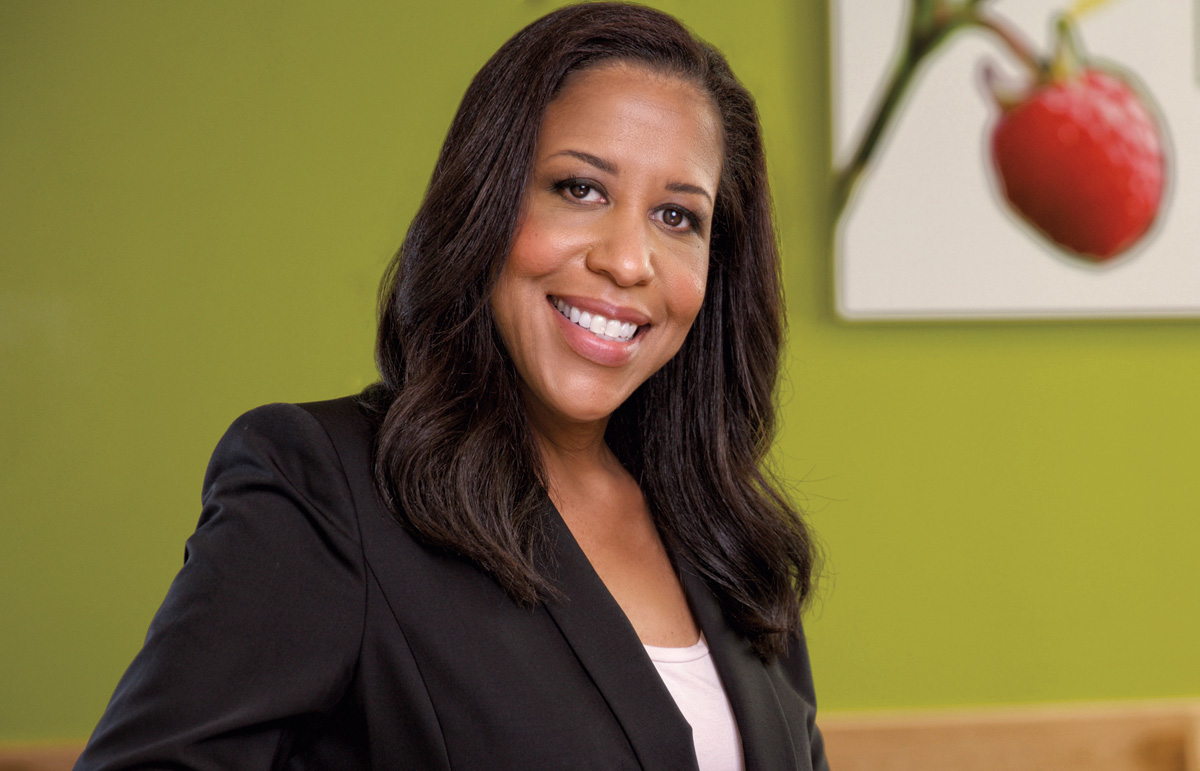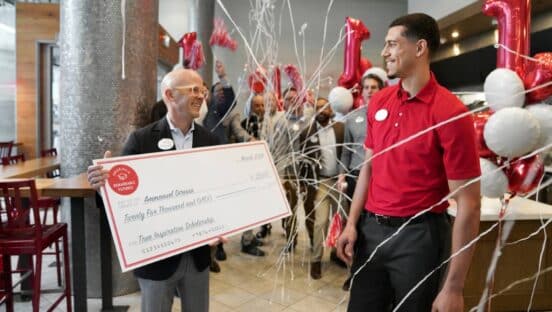It’s been nearly a year since a rash of allegations against film producer Harvey Weinstein swept the news circuit. But as numerous as those accusations against Weinstein were, it was only a tremor in the earthquake that would follow. Beyond the glitz of Hollywood, people—mostly women—of all industries began coming forward to share their own stories of sexual harassment.
The restaurant industry was not above reproach.
First came charges against John Besh, then Mario Batali, Ken Friedman, and Mike Isabella. Isabella denied the allegations, but the other three have since resigned and retreated from the public spotlight.
All four are chefs, and some may argue that such behavior occurs more often in the full-service, fine-dining side of restaurants. After all, the intense, high-stress nature of restaurants has given rise to a dark “chef culture” wherein verbal outbursts and off-color humor are accepted as part of a tough profession.
But reducing restaurants’ part in the #MeToo movement to the mercurial temperament of some chefs oversimplifies the issue. Chef personalities may not be as prevalent in limited service, but the segment is not without its abuse of power and inappropriate conduct. Managers can still take advantage of staffers, back-of-house employees can still make unwanted advances toward their peers, and victims still face repercussions in reporting such incidents.
Like sexism and prejudice, it’s a nuanced issue with no one-stop solution—but it’s not without hope. To stop harassment in its tracks, restaurant teams can cultivate an environment that does not tolerate such behavior and stop turning a blind eye when that social contract is violated. Greater representation of women at the leadership level won’t solve the problem, but it could help by leading to more balanced policies and showing other women a path to advancement.
There’s not one solution to sexual harassment, but in the wake of #MeToo, there’s plenty that limited-service operators can learn about their own management styles.
The blind eye
In November, Tom Colicchio wrote an open letter to chefs that was also a call to action. The celebrity chef derided the “larger culture that hatched all these crummy eggs,” while also challenging the idea that the spate of accusations against industry bigwigs was a revelation. Instead, Colicchio called out his peers—and himself—for having put up with harassment for too long, thus perpetuating that noxious culture.
“My kitchen is hardly perfect. I’ve let my temper run high and driven the pressure up. I’ve brushed off the leering without acknowledging its underlying hostility,” he wrote.
For Colicchio and other restaurant leaders, the problem isn’t merely the bad actors, but rather whole teams that are complicit by inaction. A restaurant can set anti-harassment policies, include them in the employee handbook, and teach those values during the onboarding process, but if they are not enforced, it’s nothing more than lip service.
For Erin Patinkin, the real breakdown is at the leadership level. The CEO and cofounder of New York City bakery Ovenly wrote an op-ed for Cherry Bombe magazine detailing the muted responses to very serious allegations. Chef April Bloomfield, for example, was criticized for not taking a more proactive approach in addressing multiple accusations against her business partner, Ken Friedman. Bloomfield said she instead focused on the food and menu development.
“People are accused of harassment, they leave their work, and then the other leaders in the organization say, ‘I wish I had done more.’ … Well, why didn’t you?” Patinkin says in an interview with QSR. “People are fooling themselves into thinking that it’s outside of their responsibility if they’re not specifically the people doing the bad deeds. As leaders, it’s your job to create the proper culture and the proper processes and policies that prevent this type of behavior or get rid of it when it happens.”
Although Ovenly is a relatively young business (its first brick-and-mortar shop opened in 2012), Patinkin has already had to face such issues head-on. In the back of house, an industrious supervisor made a joke about rape to a female staffer. Patinkin took him aside to point out that it was inappropriate and even constituted verbal harassment. Almost as soon as he went back to work, he made another offensive joke—Patinkin suspects he was doing it to defy her—and was subsequently fired on the spot.
Obviously not all situations are as black and white or confrontational, but Patinkin concedes that it can be a difficult path to walk. In fact, it took her and her business partner Agatha Kulaga some time to “be comfortable being uncomfortable” during those hard discussions with staff. But again, she says, it’s a necessary responsibility in being an effective leader.
“I don’t think there’s a way to ever fully get rid of sexual harassment across the board, but there is a way to create businesses that don’t condone it,” she says.
Ovenly might have its sights set on national growth, but the brand is not yet as influential across the industry as, say, Besh Restaurant Group. What frustrates Patinkin in that regard is the silence from those leaders who have a massive platform and can make a stand in an impactful way. That could change as more tastemakers like Colicchio chime into the conversation.
Of course, the size of a restaurant business adds another layer of complexity. Even when conversations are difficult, owners can keep tabs on the goings-on at their one or two businesses. When it’s a built-up system with locations across the country, that personal touch is diluted.
“No matter how entrepreneurial you want your organization to be, if you plan on growing it, you are ultimately going to have some level of bureaucracy associated with what you’re doing,” Patinkin says. “And that can either work against you and you can become slow and rigid and hard to move, or it can work for you by putting the proper layers in place. And the way to do that is hiring.” That’s why Ovenly’s interview process includes questions to gauge a person’s EQ, or emotional intelligence. It’s also one reason the brand enlisted the help of experts in the field.
A plan for parity
One company whom Patinkin admires for its built-in values is Zingerman’s. The gourmet food group encompasses everything from a mail-to-order business to a bakery to a working farm/special events venue. But back before Zingerman’s had flourished into a diverse collection of concepts, it was a locally owned deli in Ann Arbor, Michigan.
From the beginning in 1982, cofounders Paul Saginaw and Ari Weinzweig wanted Zingerman’s Delicatessen to be known for two things: great food and great service. Thanks to its commitment to quality and local sourcing, the restaurant quickly became an institution. Once Saginaw and Weinzweig were no longer needed at the restaurant all day, Zingerman’s began getting complaints about the service. As a result, the cofounders took time to document their systems and reapproach the service component. Through that process they identified five elements to building an organization culture: teach, define, live, measure, and reward.
“The part that perhaps is so often neglected is the living-it part. I think everyone understands that if we’re not modeling respectful behavior ourselves, we could create a culture that’s conducive to harassment—that seems pretty cut and dry. The harder part is thinking about what it looks like to actually live and lead,” says Tabitha Mason, managing partner at Cornman Farms, which is Zingerman’s working farm and venue space for special events and pop-up dinners. “If I see aggressive behavior and I don’t say anything, then I’m sending a message that that type of behavior is OK. I think a lot of businesses have systems in place that say, ‘This behavior is wrong,’ but if they’re not acting on it, it’s almost like death by 1,000 cuts.”
In addition to her role at Cornman Farms, Mason has been a trainer at ZingTrain since 2012. ZingTrain is yet another arm under the umbrella group, but unlike its food concepts, it serves as a consultancy for other businesses. It was established in 1994 as a way to share Zingerman’s unique approach to building company culture, and in the intervening decades it has worked with companies across retail, real estate, healthcare, nonprofits, government, and, naturally, restaurants.
Public seminars, workshops, one-on-one consultations, and other resources can help guide smaller brands before they ramp up growth, as well as larger chains seeking to refresh their culture. In examining Ovenly’s organizational structure, ZingTrain’s influence is apparent. For one, the bakery follows the reward element even if it can’t give bonuses or salary increases. Instead, Patinkin says it will give shoutouts in the staff newsletter or during meetings.
Another is Ovenly’s open-door policy. A team member can go to any manager with a problem, not just their direct supervisor. This arrangement offers employees multiple paths to addressing a problem—something that is especially important if it’s a matter of harassment.
“Having a female supervisor, manager, or owner that someone can go to will help female employees feel comfortable … instead of going to some guy in a suit that they might not relate to,” Mason says. “Great service isn’t just about customers, it’s about your coworkers. … Acting polite, being supportive, [and] being considerate to each other are some of the ways we give great service to each other. Nothing about sexual harassment falls in line with that.”
Driving Change
Implemented alone, a trickle-down approach to rooting out harassment falls short in larger companies. That kind of passive approach does little to address the store-level environment where employees in the front and back of the house are far from the corporate leadership.
“The top-down model doesn’t always work in the right way and can result in people at the top taking advantage of lower-level people. We keep seeing that over and over across industries,” Patinkin says.
Nevertheless, the C-suites of the foodservice world could stand for more diversity. As Mason points out, the healthiest businesses are often the most diverse. In foodservice, the irony is that it is one of the more diverse industries at the base level, but that rich variety gets lost somewhere on the journey to the top. Marie Perry, CFO of Jamba Juice, refers to that very disconnect as a leaky pipe.
“In my career, what has made a difference is actually being able to see somebody in a role that I aspire to be in. Having those role models in the restaurant industry, I think, is critical,” says Perry, who worked in the airline industry before moving to Brinker International 15 years ago and later Jamba Juice in 2016. “What’s so unique about the restaurant industry is that there is this collaboration across the industry. In the airline industry, you don’t see CEOs getting together to drive the industry.” And in the airline world, she adds, you don’t see female CEOs at all.
Restaurants’ inherent cooperative spirit is perhaps best exemplified by the Women’s Foodservice Forum (wff), where Perry is a board member and former chair. Recently, the organization worked with global consultancy McKinsey & Company to create a special report on women in the food industry. One finding indicated it would take another century to reach gender parity at the current rate of change. That, Perry says, struck a nerve.
“That just resonated with myself and the rest of the executive committee, so we took that as an action item that we’re not going to wait 100 years. There is something that we can do, and there’s something specific that WFF can do and play a part in to galvanize the industry,” Perry says. “Momentum is an amazing thing. I saw it [during the March for Our Lives event in March] with the high schoolers activating change. There is momentum going on, so when you ask, is this just a fluke? I really don’t believe it is, because I believe that the momentum is on our side.”
For the WFF, the data is on its side, too. The McKinsey report has gone a long way in informing how the organization updates its strategy, says WFF president and CEO Hattie Hill. Earlier this year, it launched the Lead the Way initiative to serve as a support platform for companies to share their own efforts in developing a more diverse and inclusive workforce, and to hold each other accountable.
Taking that synergy a step further, the WFF also achieved an unprecedented level of collaboration with other industry groups, including the NRA and the International Foodservice Manufacturers Association.
And while values like gender equality and diversity should be sought after for their own intrinsic worth, Hill believes a combination of compelling data and an evolving workforce will drive change, too.
“What we’re trying to do is fact-based and data-driven so that we know where the gaps are and where the movement needs to be,” she says. “Statistically, we know that 61 percent of the people coming into the workplace today look for diverse teams when they sign on with an organization. We also know that 67 percent of women look for positive role models. If they don’t see it through social media and all of the channels, they’re not interested in interviewing with you.”
With unemployment down to 4 percent, both Hill and Perry call today’s job market a war for talent. Investing in diverse teams and a tolerant, equitable work environment isn’t just the right thing to do; it’s a necessity for any business to remain competitive. And companies that fail to demonstrate those values will lose out.
It’s unlikely the #MeToo movement is to sustain media attention indefinitely, but there is a palpable sense that something has shifted. Issues that were once swept under the rug are now in the spotlight.
Zingerman’s Mason is heartened by this new surge around gender parity and better work environments. Looking back to the mid-1990s, she recalls how management at one restaurant advised her to get a tighter uniform. At the time, it was a commonly accepted practice and even printed as a way to earn more tips—along with wearing makeup—in many employee handbooks. Progress has been made since then, but it’s still a long way to go.
“I’ve worked in restaurants since I was 18, and I’ll be 41 soon. It’s an industry that I think is just so special, and I have a lot of love for, but I’m glad that we’re finally having these conversations,” she says. “Because in so many restaurants, it is an elephant in the room.”











